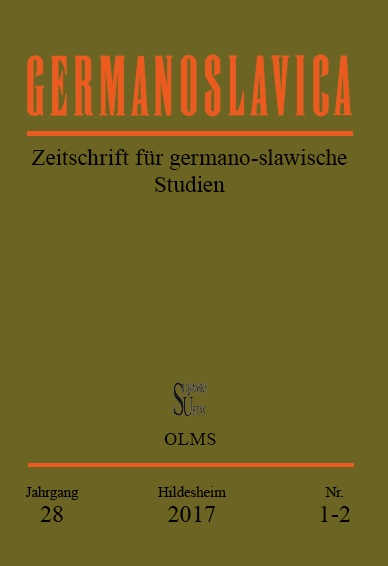„Pan Samochodzik und das verfluchte Dreieck“, oder Die Trias Polen – Deutsche – Russen in polnischer Jugendliteratur als Artikulationsfeld eines (post-)kolonialen Traumas
“Pan Samochodzik” and the Damned Triangle, or The Triad of Poles, Germans, and Russians in Polish Teen Fiction as an Arena for Articulating a (Post-)Colonial Trauma
Author(s): Dariusz SkórczewskiSubject(s): Theory of Literature
Published by: AV ČR - Akademie věd České republiky - Slovanský ústav and Euroslavica
Keywords: polish literature;Zbigniew Nienacki;literary motives;
Summary/Abstract: For several decades, one of the most popular Polish literary series for teenagers has been the over 100 novels about “Pan Samochodzik” [Mr. Little Car], initiated in the 1960s by Zbigniew Nienacki (1929-1994) and continued in post-socialist Poland. In both Nienacki’s work and that of his followers the reader is struck by the frequent appearance of Germans and German motifs. This essay seeks an answer to the question of whence this “over-representation.” Employing postcolonial theory, psychoanalysis, and trauma studies, the analysis of ethnic stereotypes allows the author to set up a hypothesis about the crucial role of the traumatic experience of colonial humiliation and deprivation, shared by Poles owing to the German and Soviet occupations, for the contemporary Polish culture and mentality. This experience, appropriated, manipulated, and contorted by the communist discourse of power, keeps “coming out of the woodwork” and refuses to be silenced even in the postcommunist era. It appears to be transmitted intergenerationally by means of popular narratives which—continuing to exploit the same motifs of war atrocities, plundering, and their aftermath—recontextualize these motifs by placing them in a new, postcolonial constellation. The metaphor of the “damned triangle” is used to describe the process of postcolonial “cultural triangulation,” by means of which category the author proposes to encompass the strategy of self-definition applied by Poles in relation to their “Others,” namely, Germans and Russians, based on their past experience of foreign domination. This strategy appears to be an indispensable component of the “innocent” teen fiction even after the formal colonial dependence has ceased to exist.
Journal: Germanoslavica
- Issue Year: XXVIII/2017
- Issue No: 1-2
- Page Range: 163-183
- Page Count: 21
- Language: German

